What made President Kufuor win in 2000?
- Posted on
- Comment
Former Attorney-General, Ayikoi Otoo, stokes a perennial fire in the ranks of the opposition New Patriotic Party (NPP) anytime the party gets ready to hold internal elections, providing rich fodder for their current opponents in the ruling National Democratic Congress.
Incidentally, I have written extensively on this subject since 1992, even though I am as Akan as they come. That is the nub of the problem of ethnic identity facing the NPP today as the party seeks to deflect the very damaging reality that the top prize in the party is a preserve of the Ashantis and Akyems in the entire life of the 4th Republic. Not one of those castigating Lawyer Ayikoi Otoo is a prominent non-Akan, implying that those who benefit from the perceived image of the NPP being an Akan-Twi party are struggling mightily to preserve their advantages of position and influence.
Today, I am suggesting to the NPP that the best way to successfully deflect this damaging accusation is to examine the reasons that made Ghanaians elect President Kufuor as President, in defiance of all the perceptions that Ghanaians have about Akan-Twi leadership, broadly, and Ashanti presidency, in particular. The reasons, honestly faced and imbibed, will help all of us to understand why the NPP has lost four out of the six elections held so far in the 4th Republic. I know, however, no heed would be paid to Lawyer Otoo or my humble self, cementing the ethnic egocentrism that has seized the party leadership.
President Kufuor is a true-blood Ashanti royal qualified to be an Apagyahene in his own right, the very sort of titular red flags that the Convention People’s Party(CPP) of yore effectively used to paint the UP as wanting to annex the power and authority of the Flagstaff House to those of Manhyia Palace to exponentially increase Ashanti influence in the polity. Added to this brew was the potent spectre of an imperial past featuring wanton plunder and conquest of other tribes in Ghana, forged in the wake of the slave trade from which the Ashanti Kingdom immensely benefitted.
So how did President Kufuor win when he personally represented all the fears of the other tribes about Ashantis?
I believe he won because he never sought in his politics to outdo his opponents in violent verbal exchanges or threaten any person or tribe. The switch to the NPP in 2000 was aided mightily by the tiring overbearing presence of President Rawlings on the scene for nearly 19 uninterrupted years. President Kufuor’s tenure in the earlier Provisional National Defence Council (PNDC) persuaded many that he was ready to work with all.
Apart from the mercurial and mythic Jerry Rawlings whose politically attractive stature has bridged both his military and civilian regimes, I submit that all other elected leaders of Ghana have presented a specific soft personality to the Ghanaian electorate. I must add quickly here that that presentation, in some cases, belied actual performance once the office was gained.
The National Democratic Congress (NDC), in spite of its electoral strongholds, have successfully got their candidates elected from Volta, Central and, now, Northern regions, while the NPP is stuck in the Ashanti and Eastern regions. The peddling of dishonest arguments about the role, activity and prominence of other tribes in the NPP only confirms the popular perception that if you are not an Akan-Twi person from these two regions, one cannot expect to get the topmost prize in the party.
An example is the pointed exclusion of the suave, soft-spoken Alhaji Yakubu Tali, the Tolon-Na, from the leadership calculus of the Popular Front Party/United National Convention (PFP/UNC) crisis in 1979. The Tolon-Na could easily have bested President Limann, but the arguments have always been restricted to material from Ashanti and Eastern regions. The recent 2007 example of the rejection of the affable Vice President Aliu Mahama need not be repeated here.
Once the office is gained, what happens in sensitive appointments also determine popular perceptions. General Acheampong was appointed solely on the basis that he was an Ashanti and could be counted on to protect the Busia regime, as Brigadier Acquah-Asare, a Fante, was rejected. President Kufuor removed Jake Obetsebi-Lamptey as his Chief of Staff barely a year after the latter’s appointment and stuck with his tribesman Kwadwo Mpiani for the rest of his tenure. Presidents Rawlings, Mills and Mahama never chose their tribesmen for these positions.
Tribal politics is two-fold; leaders who are bigots and whole tribes which vote one way for only those they can identify with culturally and linguistically. The non-Akans and Akans in Greater Accra, Volta, North, Upper West, Upper East, Brong-Ahafo, Western and Central regions have effectively shown that they don’t vote on tribal lines. What about the others?
In all these permutations, some of us refuse to look the political truth in the eye; the NDC, like the CPP of old, have become masters of retail politics in this country. The NPP seems supremely uninterested in playing even catch-up. Secondly, and as a corollary of their retail skills, the NDC has grown and continues to grow into a formidable political and electoral machine, extremely flexible and ready to meet the electorate at the point of their needs.
The 2012 elections demonstrated the flexibility of the NDC as they fought an election five months after the death of President Mills, parried the disintegrative and divisive politics of their founder, President Rawlings, and his wife and presented an attractive, energetic and politically savvy President Mahama already in place, waiting in the wings to carry the banner forward to victory.
The response of the NPP when it lost—challenge the results in court. The first order of business when the court convened-apply for the removal of the non-Akan president of the panel and then withdraw the motion when they realised Justice Atugubah was from the same part of this country as Dr Bawumia and President Mahama. This is an excellent example of the political inflexibility which is the handmaiden of the negative stench of ethnic politics.
By Collins Essamuah/Daily Graphic
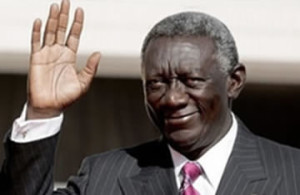
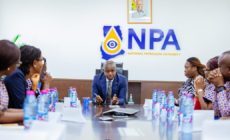
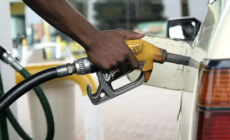
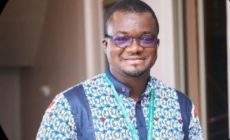
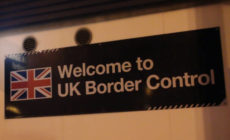






 (Selorm) |
(Selorm) |  (Nana Kwesi)
(Nana Kwesi)